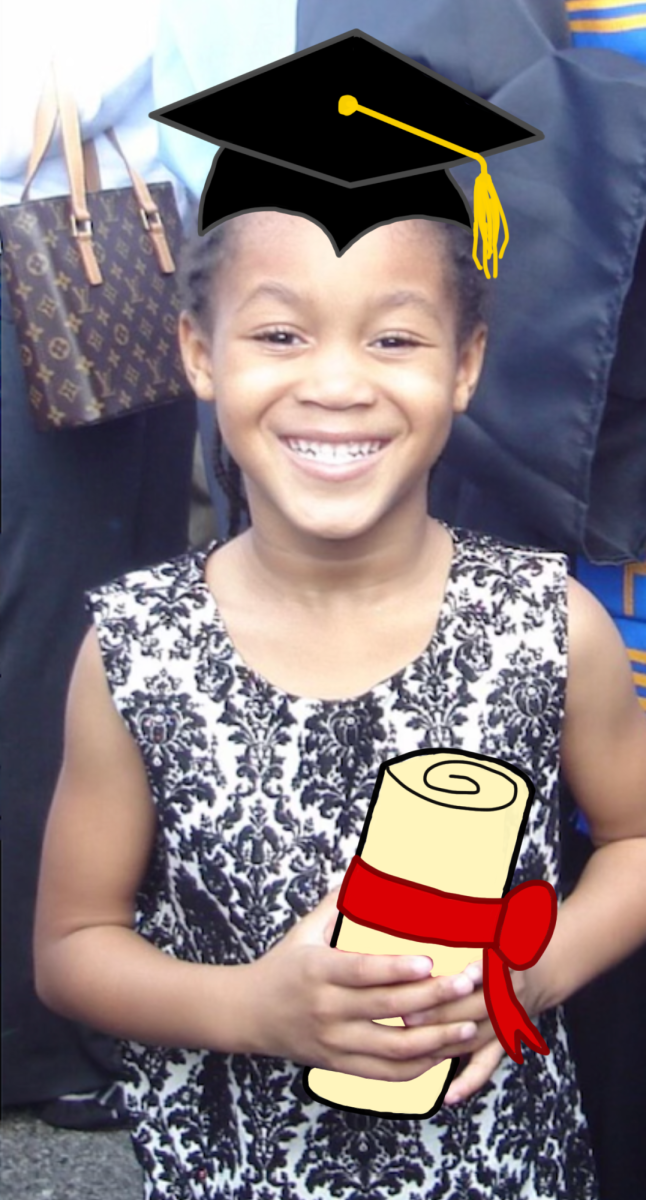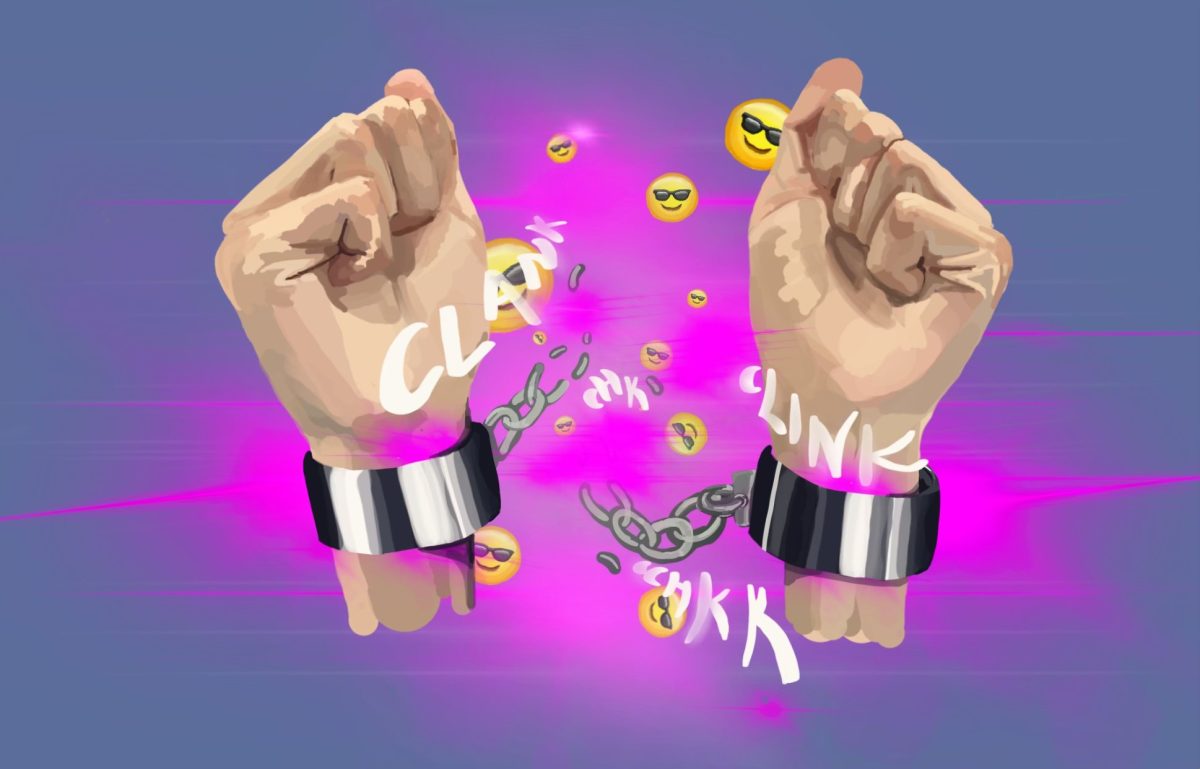Six months ago, Whiplash was my favorite movie. Whiplash was sweaty Miles Teller gripping at bloodstained drumsticks. It was J.K Simmons looming over hi-hat cymbals and launching chairs. All the rushing and dragging and jazzy rhythms and dissonances thrummed against the TV screen, syncing my pulse to the four-four beat that Miles could never get quite right. But that’s where it all remained once the credits played, contained behind the TV screen, allowing me to walk away having deemed Whiplash my favorite movie and nothing more. Even Google concurs: when you type “Whiplash” into the search bar, “2014 Film” appears, and that’s it—there’s no desire to scroll down.
Five months ago, I scrolled down.
In September of 2023, after headbanging too hard at a concert, followed by a long-forgotten minor back-up collision into a gas station pole during my road trip to college, I developed whiplash. I remember sitting through the Aims of Education speech, gripping my neck with my hands, steadying my head as if it were a greasy bowling ball threatening to slip off and wondering if the tooth fairy would materialize right then and there. Whiplash was not supposed to be real. How could I be diagnosed with “2014 Film” on my first day of college?
Anger is the easiest emotion. It is tricky to gift yourself happiness and it is embarrassing to let yourself be sad, but anger wraps itself around it all like a spiky safety blanket. So I bundled up and got angry. Expressing the discomfort of whiplash is impossible to someone who has never experienced it: imagine a piano with cables tied to its legs, and these cables end in carabiners, and these carabiners pinch your ears, your temples, your shoulders, your neck, and every strand of hair, letting the piano hang like a necklace. Sitting still was torture, and I’d nearly dunk my head into every plate of food or book I had in front of me. I was furious I had to navigate O-Week with such pain—the stakes seemed immeasurably high. O-Week was like hundreds of mini conferences clustered around campus, rumbling with elevator pitches on why you should be friends with this person and that person. Whiplash immediately exhausted me of the energy I had stored all summer for constructing a social life that, according to so many, was the one that made high-school friends seem like fillers when it really stuck. Fortunately, I made one friend, who introduced me to another friend, and we all stuck together. I considered shrugging off my spiky safety blanket a little. As I skipped O-Week events to rest, they networked for me. They told people that I was worth it behind the whiplash, that the symptoms would soon pass and being friends with me was a “long run” ordeal, like visionary architects reporting on a dilapidated building with solid foundations they picked up down the road. I was appreciative of their support but devastated regardless. I was devastated by my lack of control, by the whiplash odds that were very much not in my favor, and, most of all, by the fact that this experience of college was falling so far short of my expectations.
There is so much build-up to attending university in the United States. I grew up in Amsterdam and only moved to Brooklyn at the age of sixteen. University in the Netherlands, and more broadly in Europe, is more of an extension of your high-school experience rather than a ginormous, competitive cherry on top to your education that requires you to uproot your life and leave everything behind. Thus, after moving to America, I thought college would be like stripping the dead skin off the past and moving forward into adulthood and professionalism, a land of unwavering emotional maturity and appropriate decision-making, of thriving social lives and parties. Whiplash certainly targeted the latter, so I clung onto the former because I thought that, at least, regardless of pain, I could function as a grown-up in a grown-up setting. In hindsight, this was a faulty, naïve conviction.
I have always been a capital-R Romantic. I like to look into the future through a warm-toned lens while gentle instrumental music hums in the background. I zoomed in on my future in America while in Amsterdam and conjured up this image of myself as a grungy, artsy NYC teenager reading poetry on the subway with an aura of cool aloofness. Who did I become, really? A girl that wore the same sweater, jeans, and Uggs combination every day that barely left her neighborhood. This past summer, I saw myself on the UChicago main quad lying on a picnic blanket with friends, discussing philosophers whose names I’m not sure I can pronounce, listening to a friend strum a guitar and play a tune my parents would be proud of. Now, I’m a girl that wears the same sweater, jeans, Uggs, and piano whiplash necklace every day. I do leave my dorm, however—Woodlawn is bleak.
This is my problem—the romanticization. I set an idea in stone and sulk when life won’t bend accordingly. Whiplash was not in the cards. But I have quickly learned that every aspect of college life is unforeseen. We, especially first-years, are kids cosplaying adults. We do not miraculously acquire every nugget of wisdom and maturity out there. I call my parents every day on how to sign emails and how many Tide pods is too many Tide pods. If you shoved the average frat brother into a lineup of high-school-junior boys, told me to close my eyes, and asked them to share their take on hookup culture, I’d struggle to pick him out. People talk behind others’ backs and use the word “clout” unironically. And there hasn’t been a drastic shift in academics. I remember sitting in the Reg after my first physics lecture with nothing to do and thinking that something was seriously wrong, that I had missed the secret meeting where our professor told us how to spend our every waking moment preparing for the next class.
After my car accident, my doctor told me that when someone throws a punch at us, we brace for impact to minimize injury. Whiplash occurs when we do not brace, and I did not brace correctly for college. The reality of it all whipped my neck back so strongly, a double whiplash to compound my pain. Assessing the reality of college next to its romanticized depiction generates a different kind of pain, a cycle of grief that repeats with every frat party or midterm or snowstorm or silly concert and car punch.
I think growing up is breaking the cycle. Growing up is yanking college down from its pedestal and stringing it into the wider narrative of your life. It’s letting the frame of your future be filled with time and accepting every ugly or wonky addition. It’s acknowledging that life is not romantic. Not at all. Life is a 2014 Film but also a list of neck injury symptoms. Life runs and drags and will never, ever get that four-four beat quite right. Right now, at this exact moment in my life, my whiplash means more blood runs down my drumsticks. But at least I’m playing. The music sounds good and at least I’m living.
Sofia Cavallone is a first-year in the College















Rebecca K / Mar 29, 2024 at 2:47 pm
Beautifully written and so true!